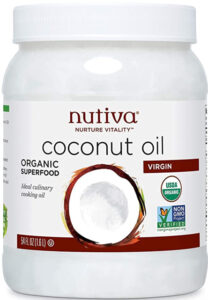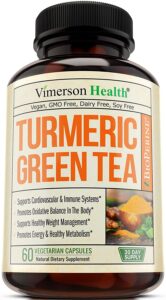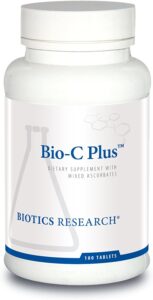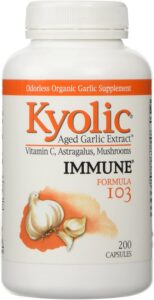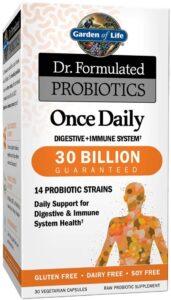
With many people returning to work and social life, you may be wondering if there is anything you can do to boost your immune system to help protect you against the pandemic.
It’s a tough question because no one knows the answer yet. It’s also tough to answer because the immune system is not “one system” in our body that can be easily measured. It’s a combination of many different components working together. Helping one component of the immune system might impair another, or boosting a certain component may have nothing to do with fighting viruses.
Although there is much we do not know about the current pandemic, we do know that a robust immune system keeps us healthy overall, and who doesn’t want that?
What’s the best way to boost your immune response? Stay away from processed foods, especially refined sugars and flours, and eat a processed-free diet rich in nutrient-dense foods such as fruits, vegetables, whole grains, and chemical-free lean proteins. This is the best way to keep your immune system healthy overall, but there are active compounds called phytochemicals in a variety of everyday foods that have powerful immune boosting abilities.
Your Amazing Immune System
We hear so much about keeping our immune system healthy, but what exactly is the immune system and how does it work? By understanding some of the basic elements of the human immune system and how they work, plus the overall role the immune system plays in your health, you can take responsibility for your own health and ward off the flu at any time of the year.
How the immune system works to keep us healthy is truly amazing. In its simplest terms, the task of the immune system is to identify those things that naturally belong in the body (such as vitamins, minerals, and phytochemicals) and those that are foreign or otherwise harmful substances (such as drugs, pollutants, germs, viruses and chemicals that are not from natural sources), and then to neutralize or destroy the foreign substances. The immune system is unlike other bodily systems in that it is not a group of physical structures but a system of complex interactions involving many different organs, structures, and substances, among them white blood cells, bone marrow, the lymphatic vessels and organs, specialized cells found in various body tissues, and specialized cells called serum factors, that are present in the blood. Ideally, all of these components work together to protect the body against infection and disease.
The human immune system is functional at birth, but it does not yet function well. This is termed innate immunity-the immunity you are born with. Immune function develops and becomes more sophisticated as the system matures and the body learns to defend itself against different foreign invaders called antigens. This development of the immune system is called adaptive immunity.
The immune system has the ability to learn to identify, and then to remember, specific antigens that have been encountered. It does this through two basic means. One is through white bloods attacking foreign invaders. White blood cells called T-lymphocytes identify and then destroy cancerous cells, viruses, and microorganisms like bacteria and fungi. The T lymphocytes, or T-cells, mature in the thymus gland (hence the “T” designation). The thymus, a small gland located behind the top of the breastbone, is a major gland of the immune system. In the thymus, each T cell is programmed to identify one particular type of invading enemy.
The second way involves the production of antibodies. These are not cells, but special proteins whose chemical structures are formed to match the surfaces of specific antigens. When they encounter their specific antigens, antibodies either damage the invasive cells or alert the white blood cells to attack. The antibodies are produced by another group of white blood cells, the B lymphocytes, which are manufactured in the bone marrow. When a B lymphocyte is presented with a particular antigen, it engineers an antibody to match it and stores a blueprint of the invader so that it can initiate the production of antibodies in case of subsequent exposure, even if a long period of time elapses in between.
What You Eat Makes A Big Difference in Your Immune Function
While the immune system is designed to keep us healthy, it can only do so when it is kept in good working order. It is aided mainly by phytochemicals and other compounds in foods that can prevent antigens from doing any harm, or destroy them altogether. The following is a list of some of the best immune boosting foods.
Orange foods – these foods contain a compound called glutathione, an immune-system component that works to destroy antigens like flu viruses. Orange foods also contain the phytochemical called beta-carotene (which is responsible for their orange color), which converts in the body to vitamin A. Orange foods include turmeric, oranges, sweet potatoes, pumpkin, acorn squash, butternut squash, and cantaloupe.
Fermented foods – these foods contain probiotics, or good bacteria, that help keep the digestive tract healthy. Many viruses live in the digestive tract, especially the large intestine, so it’s important to keep a proper balance of disease fighting probiotics in the large intestine. Probiotics stimulate white blood cells. Fermented foods include yogurt (plain, organic, and unsweetened is the best), kefir, and kombucha tea. Probiotic supplements are often a good way to ensure that you are getting enough probiotics.
The Anti-Viral Foods
We don’t yet know what works against COVID19, but there are certain foods that work extremely well against many other viruses. These are foods that basically stop viruses in their tracks and prevent them from attacking healthy cells.
Garlic – one of the best and strongest anti-viral foods you can eat because it stimulates immune cells. It contains the active compound called allicin, which fights infection and bacteria. One clove of garlic a day can have a powerful effect on boosting immunity.
Coconut Oil – contains a high amount of a special type of fatty acid called lauric acid, the main component found in mother’s milk, which is responsible for strengthening the immune system and protecting against viral and bacterial infections. Studies show it has many healing properties, including its effectiveness with treating the HIV virus. The way it treats protects against viruses and bacteria is amazing. Many viruses are enveloped by a protective membrane composed of fats. Current research indicates that the fatty acids in coconut oil destroy viruses and bacteria by dissolving the fatty envelope surrounding them, essentially causing them to disintegrate.
Green and Black Tea – a recent Harvard University study showed people who drink 5 cups of black tea a day for two weeks had 10 times more virus-fighting chemicals in their blood than those who drank a placebo drink. The amino acid responsible for this immune boost is also abundant in green tea, and in the decaffeinated versions of both. Green and black tea contain a host of antioxidant compounds which help keep us healthy overall.
Flush Your Immune System to Keep it Healthy
Water – The immune system must be flushed with water daily to rid the body of toxins, viruses, and other antigens. This is one reason why keeping yourself hydrated is important. Do not underestimate the importance of drinking adequate amounts of water. The required amount of water per day is different for everyone. To determine how much water you need, divide your current weight by two. The resulting number is the number of ounces of water you need to drink daily.
Green Foods – Any food that is dark green in color is considered a green food, such as broccoli, spinach, kale and lettuces. Green foods also refer to green tea and a number of commercially available products containing dehydrated barley grass, wheat grass, or algae sources such as chlorella or spirulina. Such formulas are rehydrated by mixing with water or juice. They may also be placed into a smoothie. Green foods-packed full of phytochemicals, especially carotenes and chlorophyll-are especially helpful in boosting the immune system and flushing the body of dead toxins.
Vitamin C Foods – vitamin C is an antioxidant that is required for at least three hundred metabolic functions in the body. It aids in the production of anti-stress hormones and interferon, an important immune system protein. Vitamin C has the ability to combine with toxic substances, such as certain heavy metals, and render them harmless so that they can be flushed from the body. Vitamin C is found in berries, acerola cherries, citrus fruits, and green vegetables. Good sources of vitamin C include asparagus, avocadoes, beet greens, black currants, broccoli, Brussels sprouts, cantaloupe, collards, dandelion greens, dulse, grapefruit, kale, lemons, mangoes, mustard greens, onions, oranges, papayas, green peas, sweet peppers, persimmons, pineapple, radishes, rose hips, spinach, strawberries, Swiss chard, tomatoes, turnip greens, and watercress.
Orange juice is an excellent source of vitamin C, but only if it is freshly juiced and has not undergone heat pasteurization.
Summary – While there is no robust scientific evidence specifically around the immune system and the current pandemic, eating a healthful diet and taking some specific nutritional supplements may improve your overall health and are likely to not be harmful if taken as directed.


